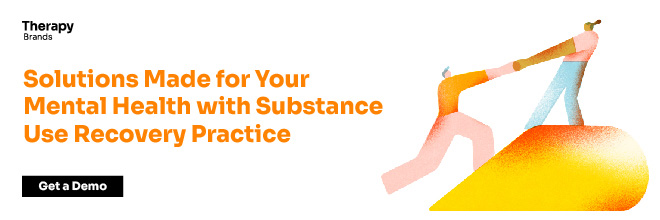April is alcohol awareness month, a time when people pause to recognize the effects of alcohol on people’s lives.
Alcoholism: A Problem Made Worse By COVID
Unless you’re an essential worker, you’ve likely spent even more time than usual at home during the COVID pandemic and the state of your mental health could be on the decline. According to a study from The American Journal of Drug and Alcohol Abuse, Americans have been drinking more during the pandemic to cope with the many changes to their everyday lives. The study results found that 32 percent of people surveyed said their alcohol consumption has gone up during the pandemic and 34 percent of respondents reported engaging in binge-drinking behavior.
Many people are turning to telehealth therapy and virtual social support groups to cope with social isolation. Now more than ever, people need increased access to mental health counseling and drug and alcohol abuse treatment to address their challenges and live their healthiest lives.
The Impact of Alcohol
There are numerous side effects from regular over-consumption of alcohol, including these physical symptoms:
- Brain damage
- Liver cirrhosis
- Gastritis, pancreatitis and stomach ulcers
- Loss of muscle mass
- Enlarged heart
- Cancer
- High blood pressure
Alcohol abuse also takes a heavy toll on the brain. It can be hard to stop drinking once you’ve been drinking for a long time. An alcohol abuser’s dopamine receptors are sent into shock once they no longer have the source of their daily fix. Some mental health issues arising from excessive alcohol use include:
- Depression and anxiety
- Dementia, neuropathy and stroke
- Memory loss
- Lack of motor coordination
- Loss of productivity
- Violent outbursts
- Domestic violence
Preventing Youth Alcoholism
The best way to stop alcoholism is to prevent it from happening in the first place. We can do this by raising awareness among teens and young adults to fully understand the consequences of their drinking. Below are a few ideas on how to encourage responsible choices around alcohol for teenagers and young adults:
- Since the brain doesn’t stop developing until approximately the age of 25, drinking as a young person can negatively impact brain development.
- Many teenagers turn to alcohol to cure their social anxiety when in large groups. Unfortunately, excessive alcohol can make people act out of character and increase the likelihood of fights or irresponsible behavior.
- Someone might think that they’re not at the risk of being considered an alcoholic because they only drink two or three times a month, but they may be engaged in a dangerous form of excessive drinking known as binge drinking. A binge drinker is someone who consumes four or more drinks during a single occasion for women, or five or more drinks during a single occasion for men.
- And finally, many teenagers are just learning how to drive. Adding alcohol to the mix is a dangerous and often deadly combination.
Self-Assessment Questions: Do I Have A Problem with Alcohol?
It can be difficult to know if you or a loved one has a problem with alcohol. Here are some questions you can ask to better determine if you need to seek help:
- Do you miss time from work or school because of alcohol? This could be because of hangovers, injuries incurred while drunk or mental health issues (like depression) that arise from overindulgence of alcohol.
- Does your drinking cause relationship problems?
- Do you use alcohol as a crutch to socialize and get past anxiety?
- Do you use alcohol to mask any psychological problems you have?
- Has a friend or family member talked to you about your drinking?
If you or someone you love has a problem and needs help, please reach out to SAMSHA’s hotline at 1-800-662-HELP (4357). At Therapy Brands, we strive to provide purpose-driven solutions for those serving the substance use and recovery industry. Contact us today to learn more about tools for therapists and practitioners that streamline business operations, so more patients can be served.

